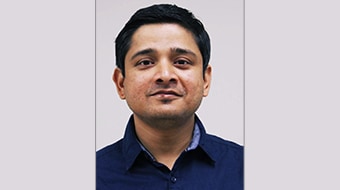Technology as an enabler of open court philosophy and access to justice “is here to stay” and cannot depend on the liking of the high court chief justices, the Supreme Court emphasised on Monday, adding that infrastructure created using public money for virtual proceedings cannot be allowed to go waste.
“Some of the chief justices are doing this and I am very deeply disturbed – they are using all money to disband the infrastructure. Regardless of whether you are technology friendly or not, this is not how you deal with public money,” lamented Chief Justice of India Dhananjaya Y Chandrachud, whose bench was hearing a clutch of petitions, seeking access to justice through virtual courts as a matter of fundamental right for the litigants.
The bench, which also comprised justices PS Narasimha and JB Pardiwala, was emphatic that proclivity of a high court chief justice must not influence his or her mandate.
“Whether a chief justice understands technology or not, they are duty bound. Some tribunals are also disbanding…as if they’re saying it was only for pandemic. Technology is not only for pandemic. It’s here to stay…it’s here for future and all times to come,” remarked the court, adding it will be issuing a detailed order on the matter soon.
It expressed concernsover the argument by judges that if they (the judges) can attend physical court, then so can lawyers.
“The conditions in which judges come is very different than what lawyers face… You may know nothing of the technology but that doesn’t mean you spend the public money provided to you by the government for disbanding the infrastructure,” added the bench.
The please before the bench also sought a directive to the high courts not to discontinue with the option of video-conferencing and virtual courts without the permission of the Supreme Court’s e-committee.
The CJI, who is also the chairman of the e-committee, highlighted that a budget of ₹7,000 crore has been made available for the third phase of e-court project.
“This money, of course, will be used for infrastructure in district courts also. Technology should not be exclusionary; it should be for inclusion of people…This money is not for our personal use. As the Chief Justice of India, I will ensure that everyone is in line. Whether they are pro-technology or not, all chief justices of high courts need to learn that technology is to be used. This is public money. Our mission is to reach out to people,”justice Chandrachud said.
The bench also sought suggestions from Bar Council of India (BCI) office-bearers, senior counsel Manan Kumar Mishra (president) and advocate S Prabhakaran to ascertain that all lawyers could make use of technology and appear through video-conferencing.
“Funds have been disbursed for setting up e-Seva Kendra at all district headquarters. We want to make sure all lawyers, including those who may not have their own laptops and other resources, can visit these centres and appear through VC,” the CJI added.
A petition filed by All India Association of Jurists and National Federation of Societies for Fast Justice, along with former Central Information Commissioner (CIC) Shailesh Gandhi and former Mumbai Police Commissioner Julio Ribeiro, implored the top court to direct high courts to continue with virtual court proceedings.
The petition, drafted by advocate Siddharth R Gupta and filed through advocates Sriram P and Mrigank Prabhakar, specifically challenged the decision taken by the high courts of Uttarakhand and Gujarat to withdraw virtual court hearing and resume physical hearing through circulars issued in August 2022. It also sought a declaration of the right of access to justice through virtual courts (hybrid model) as a guaranteed Fundamental Right of each and every litigant of the country.







